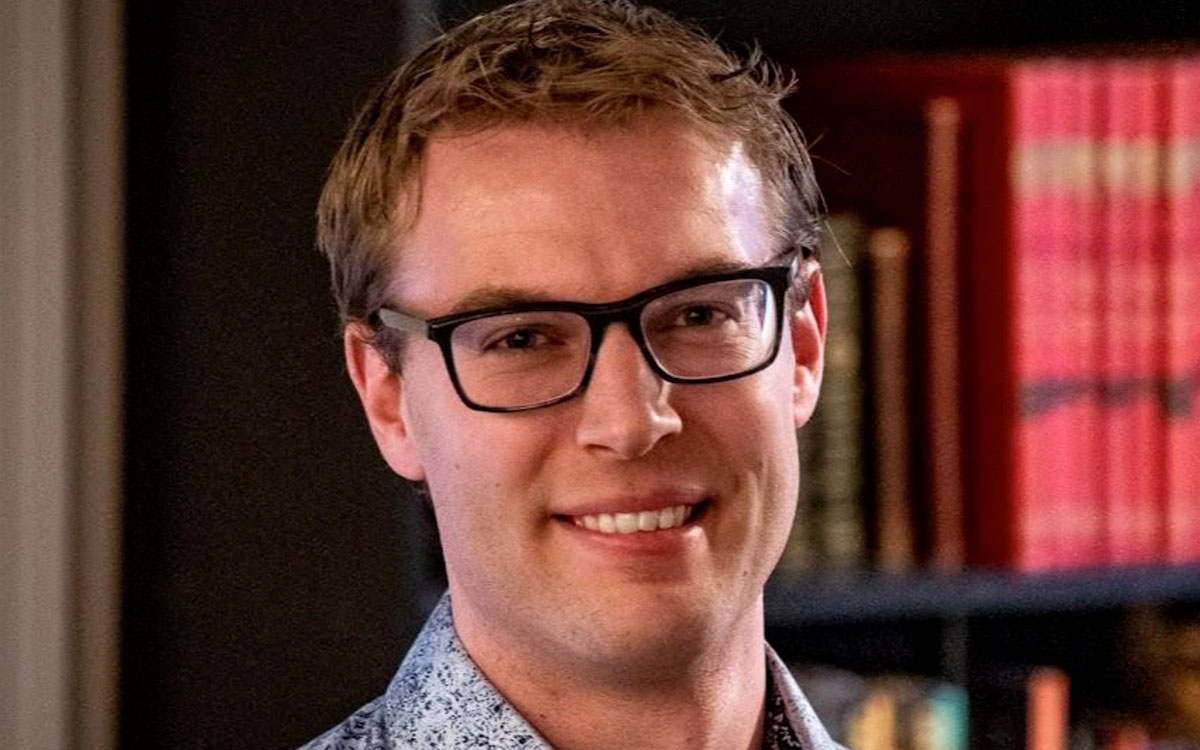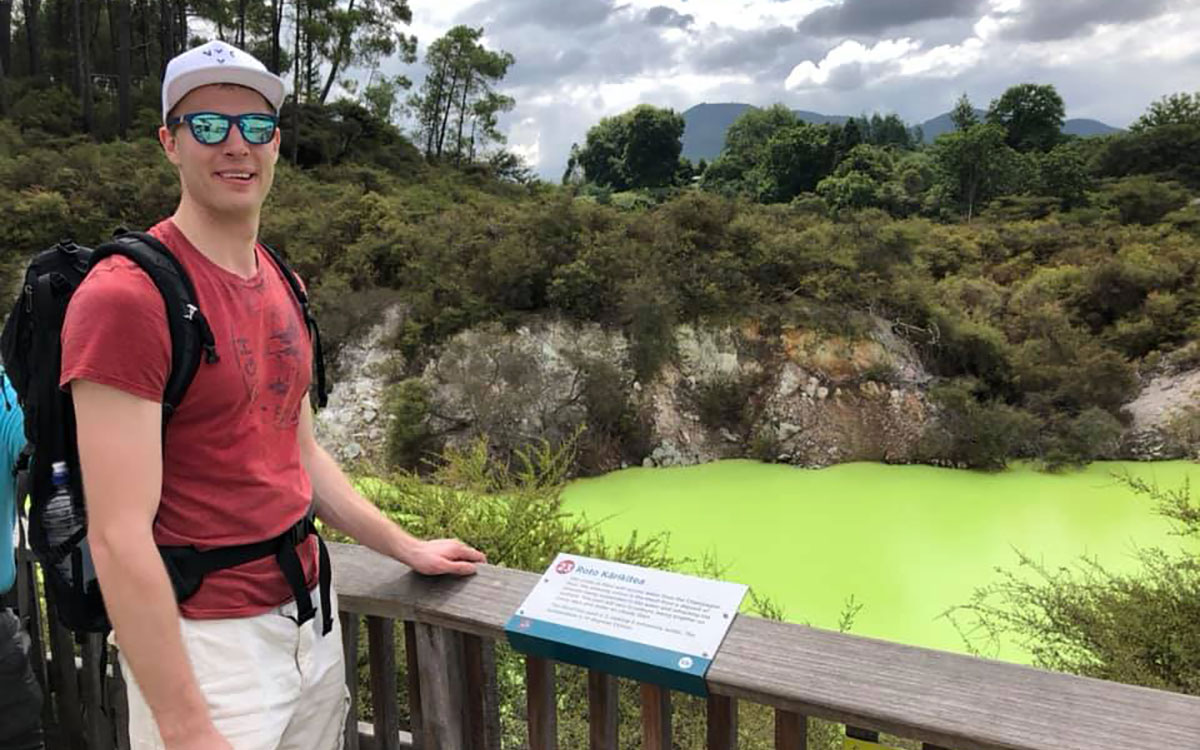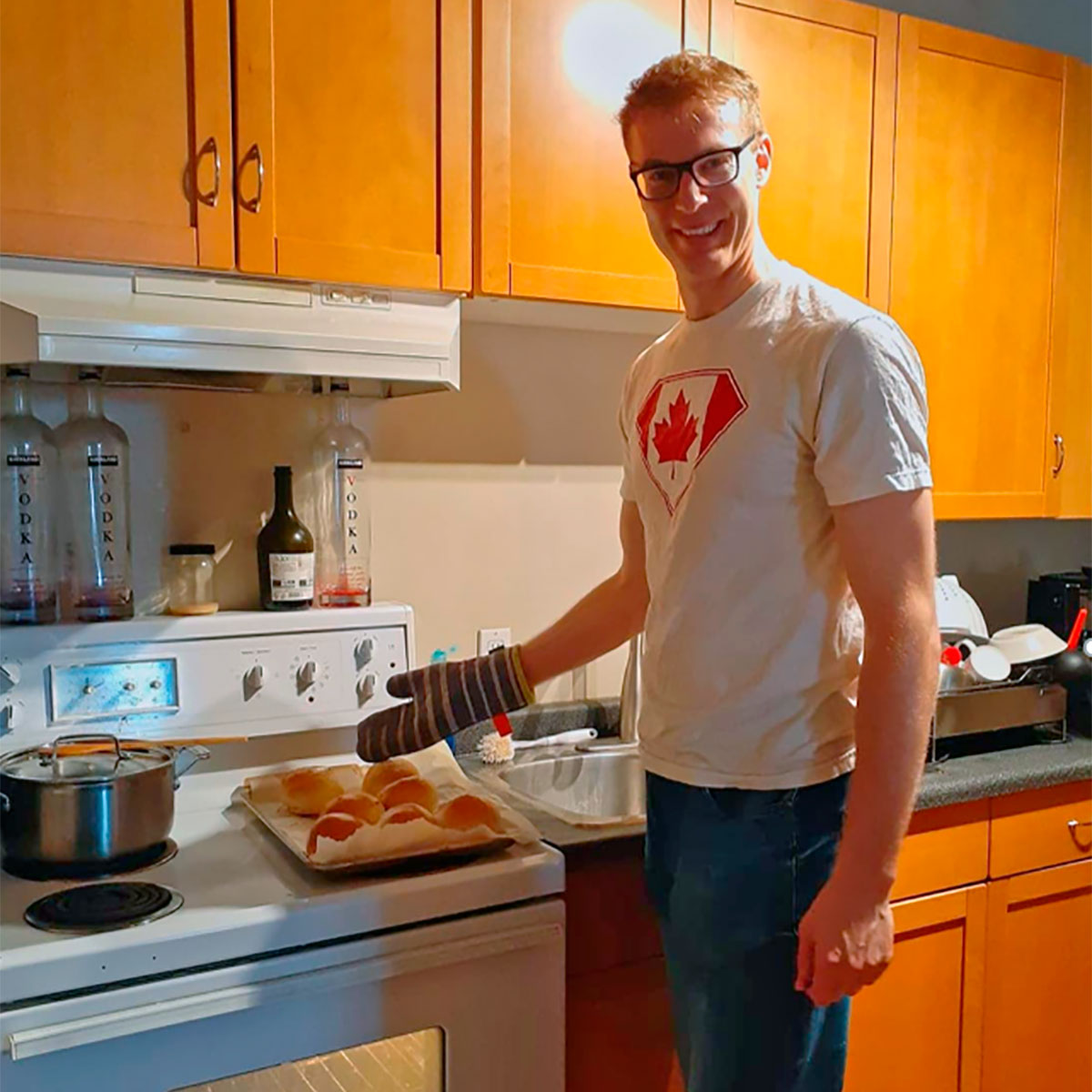
Tell us about your educational background, work experience, and what you are engaged in these days.
I come from a geophysics background. I did my Bachelors at Western University in Ontario, then my Masters here at the University of Calgary where I was able to integrate with the geophysics community. I had a great time doing my MSc with the CREWES Consortium, also working closely with Nexen, and fortunately the timing worked out, so it actually led to full-time work which I did from 2017 to 2020. I enjoyed my work at Nexen immensely, which involved oil sands geophysics, offshore exploration geophysics, analytics in Python, and petrophysics. In April 2020 I was affected by the layoffs and quickly decided to go all in on the “big data” space: completed an online Data Engineer nanodegree on Udacity, and then a specialized Data Engineering fellowship, which fortunately led to some job offers. Since April of this year, I have been working as a data engineer for BDO, working on various data and software projects for clients across Canada.
You were a geophysicist and have now become a data engineer. What motivated you to make this change? What aspects of the transition were most important, and were there any other considerations?
From the analytics and coding work I did at Nexen, I always knew I would pursue something in the “data and analytics” world if the axe ever came down on my geophysics career. So, in 2020, when it happened (in hindsight, not a bad thing), I began by comparing and contrasting the two disciplines I was most keen on: data science and data engineering. The data science track was very well-established; the data engineering pathway was very new at the time (still is), which intrigued me. Data science is all about visualizing the data and coming up with predictive models to make business decisions based on the data. Data engineering is more about the backend. It's enabling organizations to ingest and actually use the huge data sets that a single computer cannot handle. It's basically enabling data science on the scale of large terabyte datasets. I always enjoyed the process of cleaning and wrangling with raw data to make it useful to others, and automating parts of the process where possible. All in all, data engineering seemed like the right path for me at the time, and I’m glad that’s what I decided. This is not the only path that geoscientists who are looking to switch careers should be looking into, which I think we’ll discuss more later.
Did you find that your training as a geophysicist helped you transition to your data engineering career? Is there anything that you, as a geophysicist, bring to data engineering, that maybe people from other disciplines don’t?
Being able to talk about my experience working with geo-datasets, i.e., having to simplify the results and deliver presentations, helped me a lot in the job interview process. Reinforcing that I used these large geophysical datasets to make business decisions, with specific examples, seemed to impress the interviewers. Mentioning dollar values, such as investment dollars influenced, or drilling capital saved from your work, is even better, since that is something a lot of people from other disciplines do not influence directly. As for on-the-job transferable skills, I would say my overall mindset of always, always QCing the data (which I got from my time looking at well logs), has been extremely useful, since I now spend a lot of time looking at SQL tables and Python dataframes.
How long were you involved with geophysics? It sounds like about a decade. What did you like about the oil industry that kept you going? You were in it through some tough times.
I had my first geophysics internship in 2011, for an iron ore mining company on Baffin Island while I was at Western. I just enjoyed the challenge and satisfaction in trying to figure out what the heck was underground based on the seismic and well data. And also, I was just grateful to have a job in geophysics! I became able to disconnect myself from the regular layoffs happening all over the place, and stay mostly focused on the work.
Do you have plans to continue volunteering with the CSEG or another society?
I’m taking a bit of a break, at least for now. I’ve had a good stint with the CSEG through several years, organizing the Geophysical Industry Field Trip, and a recent two years on the Board. I could see myself getting involved with something like the YYC Data Society, but we’ll see where I end up.

Would you recommend the role of data engineering or similar careers to other geophysicists?
Yeah, so that’s very much a person-by-person question. I would not say switching from geoscience to data science or data engineering is the default choice. I had a good feeling it was the right decision for me, though. That’s because I always found myself enjoying the data intensive tasks the most: whether it be wrangling with data in Python, petrophysics, making dashboard visualizations in Spotfire, or just cleaning up these large datasets so others could make use of them.
From another perspective though, I noticed, through my time at Nexen, that you can almost group geoscientists into two camps: the ones that enjoy working on the “big-picture” exploration projects, where you put together a story with limited data, and the ones that enjoy working on projects with almost too much data, such as oil sands and shale gas leases. I would hypothesise that the second group is more naturally suited to data and analytics career paths.
What are your recommendations on the best way to pursue a career in data engineering, knowing what you’ve been through and found your way? Travelling in New Zealand
Right, so if you think you are interested, the first thing you should do is take a course in SQL (structured query language, for database manipulation). That’s a universal skill that anyone in data needs to know. There are tons of websites with free or cheap courses. Udacity, Udemy, and EdX all have great options. If you get through the course without finding it boring, and you even enjoyed the exercises, then that opens the door to continue your development. The data science side involves learning about Python, statistics, visualization, and machine learning. The data engineering side involves learning about Python, cloud computing, SQL databases, and Spark. But before you apply for jobs, make sure you have completed one or more self-driven projects that are publicly accessible, or else you will never stand out from the crowd.
What was your most interesting role and why? It's not restricted to your current role.
Definitely the Nexen wildcat exploration well offshore Brazil I was on, from a non-op perspective. For about three months in 2019, we were receiving daily reports and raw data from the well as the drilling progressed. My duty was to ingest the raw data, perform and update the petrophysical interpretation, and send daily reports to senior management. I’ll always remember the week when we were finally drilling through the reservoir - there was a non-stop conveyor belt of managers, VPs, and others coming by my desk, wanting to see the latest data. “Is it a discovery or a dry hole??” Definitely a lot of adrenaline during that period, and it was very satisfying being able to apply what I had learned over the past year in petrophysics, to recommend a path forward on this high-profile project!
Can you give us a day in the life of Eric Rops today?
Right now, I’m a Data Engineer inside the technology arm of the BDO consulting firm. These days, I have stand-up calls with my project team every morning at 7:45 AM - pretty early because we are on Eastern time, but I just roll out of bed since it’s remote! These meetings are only fifteen minutes long, but allow everyone to give quick progress updates, and talk about any roadblocks that have come up. The rest of the day is spent coding, mostly in Python at the moment, integrating it with cloud services like AWS and Azure, documentation, and also having spontaneous video chats with colleagues. My current project is in collaboration with the Canadian Government on authenticating COVID vaccination records - unlike anything I’ve ever done before, but I’ve really been enjoying the exposure.
Outside of work, what keeps you busy? What are the hobbies you have?
I got my first bicycle this past spring and have gotten addicted to finding new paths to bike around Calgary. When COVID hit I got really into playing online chess, which I still play daily, as I’ve always got a few games going on Chess.com. Another COVID-induced hobby has been getting more creative in the kitchen rather than eating the same thing every single day. This was most relevant when I was job searching, but some of my favorite creations have been shepherd’s pie, ramen, and pho!

What's your advice for young geophysicists, especially having gone through this downturn and changing careers?
If you are considering a career switch into data, I would say take some time first to reflect before continuing down that path. It is not the only option, and probably not the best option if, for example, you can’t stand organizing many columns of data in Excel. It’s not mentioned very often, but most of a data scientist’s or engineer’s time is spent doing grunt work. If you are unsure, take an SQL course, and if you find yourself enjoying the exercises then hey, maybe you should continue down this path!
Eric, thank you for agreeing to this interview with the Recorder. It was great working with you when you did your MSc and later as an intern at Nexen. Your perspective is very important as many of us look to expand or change careers. We are also very grateful for all the contributions that you made to the CSEG. I expect our paths will cross again as geophysicists use big data concepts more and more. It’s good to have one of us on your side of the data engineering business, because we know that any software that you’re involved in likely will be able to handle geophysical datasets.
Thanks David, it was great to reconnect throughout this interview process. I will miss those days where we worked together at Nexen, though that experience I think has positioned me very well to develop my career in the Big Data space. Look forward to our paths crossing again, be it through walks, bikes, or professionally!
Ruth, I don’t think we’ve met directly, but thanks for your significant contributions in making the RECORDER a pleasant and informative read, and also your wider contributions across the CSEG over the years. This piece reads MUCH nicer after your edit.











Share This Interview